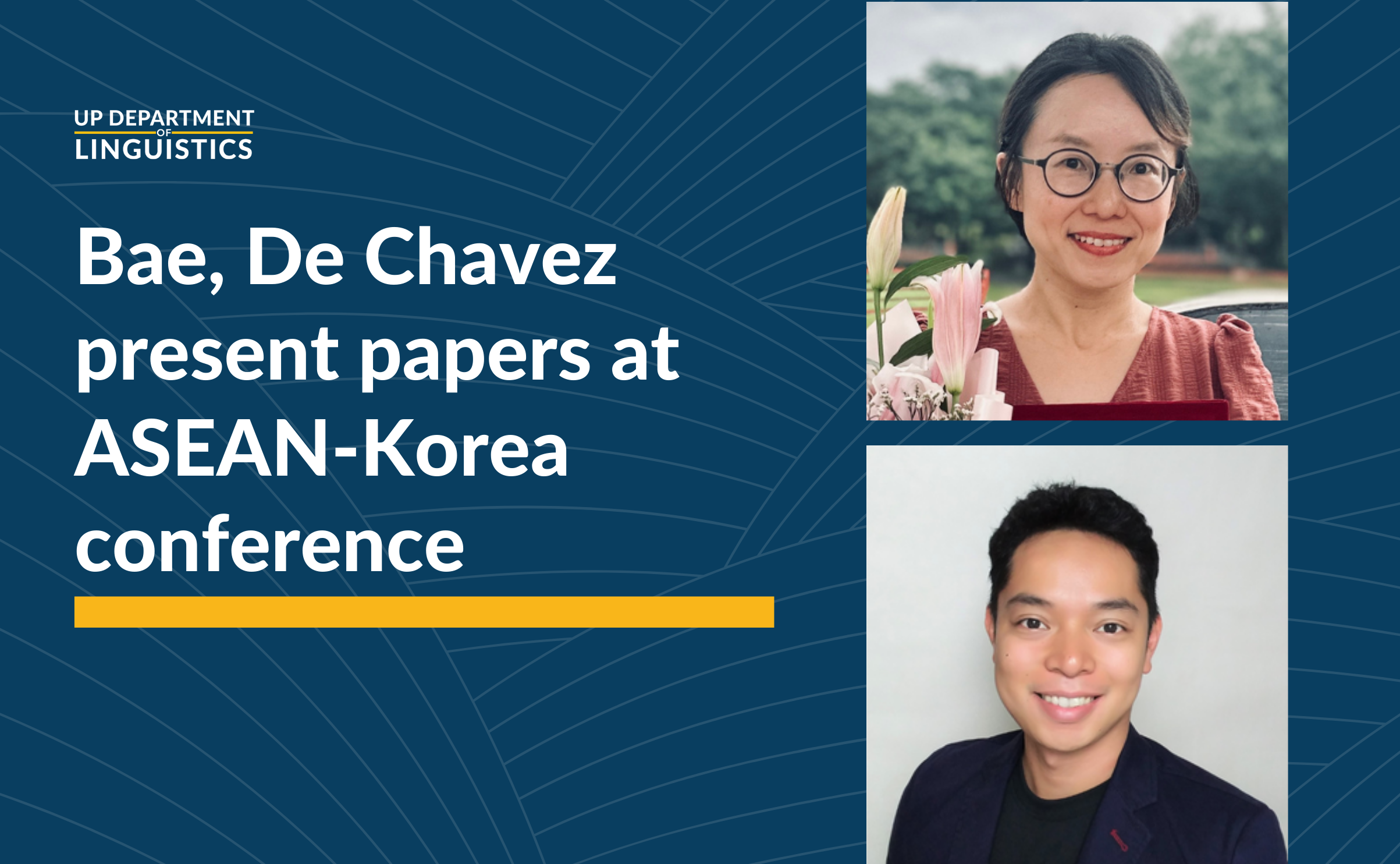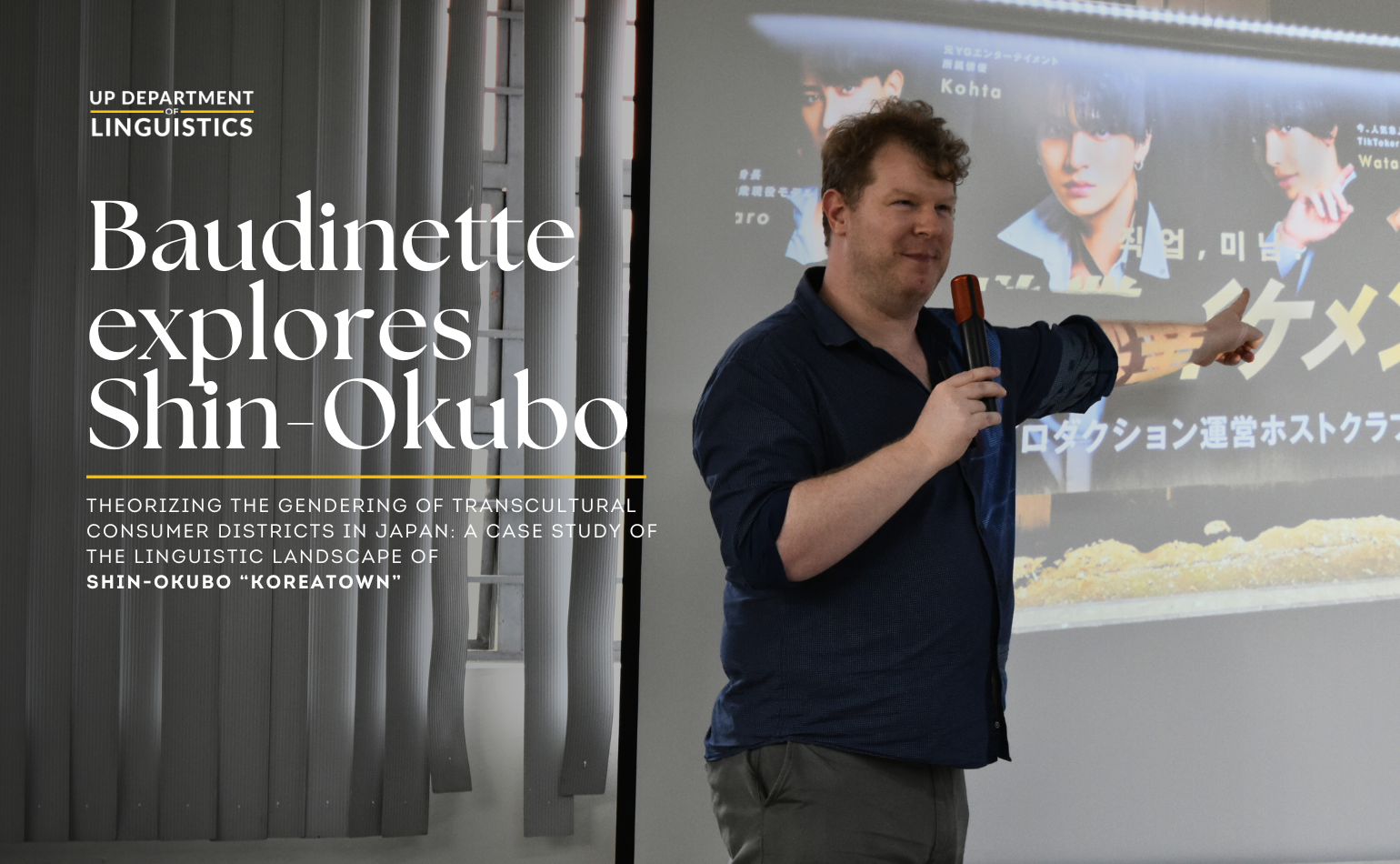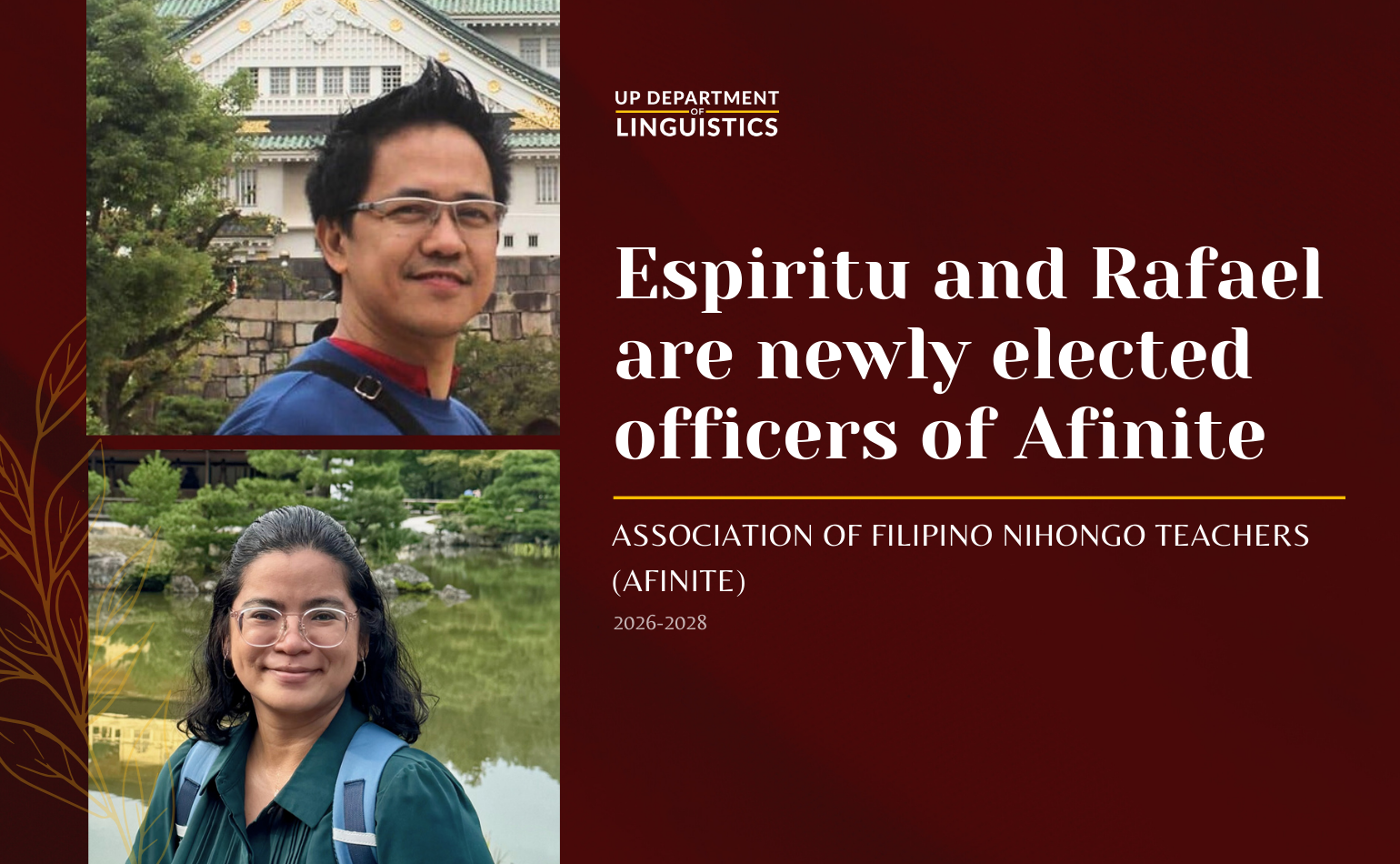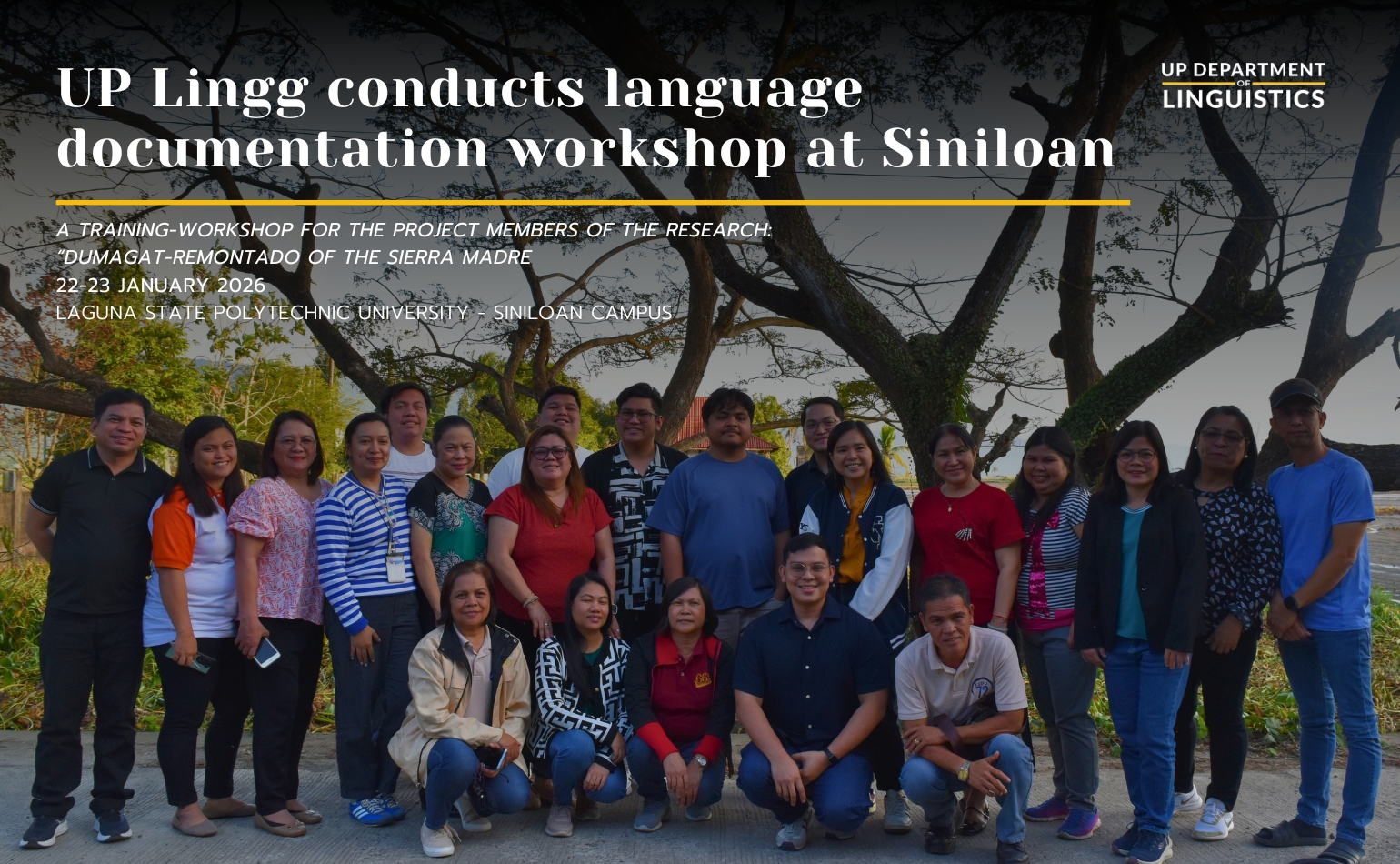
Assistant Professorial Fellow Kyung Min Bae and Senior Lecturer Mark Rae De Chavez are currently at the Thammasat University in Thailand to present their papers at the panel, “Philippines and Korea @ 75: Examining the Diplomatic and Socio-Cultural Partnerships of the Two Nations,” during the 2024 International Conference of ASEAN Studies: “Strengthening ASEAN and ROK Relations: Towards a Comprehensive Strategic Partnership.”
Their panel presentations, done with support from the UP Korea Research Center (UP KRC), will discuss the collaborations between the Philippines and Korea. Here are their abstracts:
Beyond Promoting International Cooperation and Understanding: Exploring Education Diplomacy between Korea and The Philippines
Gerard Concepcion, Ph.D.
Ronel Laranjo, Ph.D.
Kyung Min Bae, Ph.D.
University of the Philippines Diliman
Diplomacy through education is a legitimate phenomenon in the context of soft power. Education diplomacy refers to the use of educational and cultural exchanges as a means of promoting international relations, understanding, and cooperation between nations. Its goal is to foster cross-cultural understanding, build relationships, and contribute to economic growth and development (De Lima 2007: 236; Saaida 2023: 3121-3122). In this paper, the dynamics of education diplomacy between the Philippines and Korea are investigated by exploring the historical background and rationale of educational exchanges, particularly showcasing significant projects, collaborations, and efforts that have improved bilateral relations between the two countries. By using a) Global Korea Scholarship (GKS) and GKS Philippines Alumni Association (GKS PHAA), University of the Philippines – Korea Research Center (UP KRC), and institutional
linkage between Busan University of Foreign Studies (BUFS) and UP Department of Filipino and Philippine Literature (UP DFPL) as cases of education diplomacy, the roles of educational institutions, government agencies, and non-governmental organizations in facilitating cross-border educational activities and exchanges are analyzed. Furthermore, this paper assesses the innovations, opportunities, prospects, challenges, and implications of education diplomacy observed between the Philippines and Korea.
Working on Sustainability: Contextualizing the Development of Local Korean Language Program in Bilateral Relations versus other Foreign Language Programs
Mark Rae De Chavez
University of the Philippines Diliman
This paper is a comparative account of the development of local language programs in the University of the Philippines, specifically Korean and Japanese. It aims to analyze the stages of development of these language programs and the factors that contributed to its progression into their current state. As the latest language added to the foreign language roster of the Department of Linguistics in the university, its path has been paved by other well-established programs such as Japanese. Comparing the historical development of the two language programs, it is evident that prior developments in the Japanese influenced the structure of the Korean program seen in its course structure. Although different in the length of time, the stages undergone by the two programs are similar: going through an introductory phase into elaboration and contextualization. Currently, the Japanese program is in a refining phase where its courses are being reviewed with information on their performance among its graduates; however, Korean is yet to reach this stage having only just instituted many of its advanced courses in its curriculum. Throughout the process of development, key factors were identified such as institutional support both internal and external. An analysis of the effect of programs provided by foreign institutions in both Korea and Japan illustrates the key role bilateral relations play in nurturing budding programs. However, internal institutional volition is seen to have a greater effect on their progress. As an academic institution, discussions regarding the motivation of establishing courses beyond their academic merit also affects the structure of the program based on prevailing philosophy. Finally, the present structure of the program, from the curriculum content, faculty roster, to the prospects of its graduates, show that there has been a shift into self-reliance and it is unclear what role external institutions will play in its future development.
Bae will also be a discussant in the paper presentation, “Supporting Future Growth Sectors: A Comparative Study of the Creative Industry Policy Trajectories of the Philippines and South Korea.” Meanwhile, Lecturer Michael Manahan‘s co-authored paper with Jovito Jose Katigbak (Bangko Sentral ng Pilipinas) and Seksan Anantasirikiat (International Studies Center), “Hashtags and Diplomacy: Perusing Netizen Engagement towards Facebook Posts of the Embassy of South Korea to the Philippines from 2016-2002,” will also be read at the panel.
Published by UP Department of Linguistics



